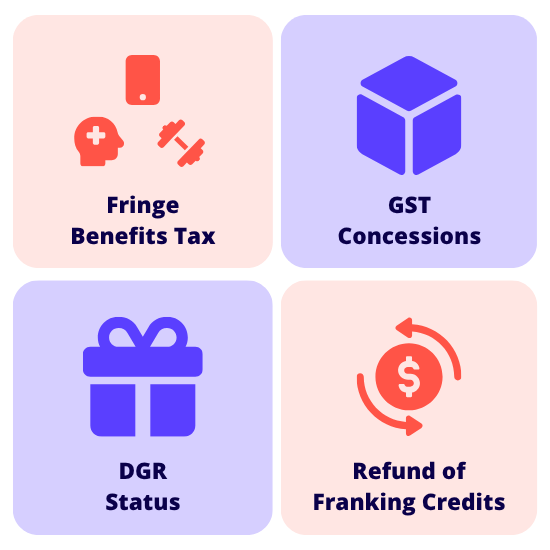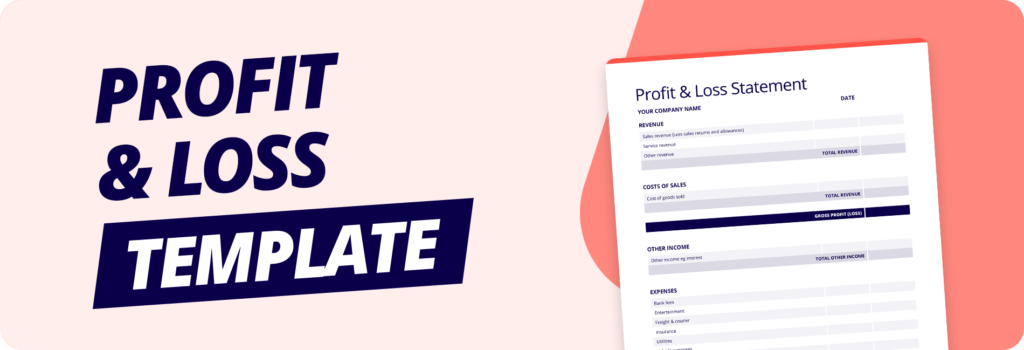If you run a not-for-profit organisation (NFP), the Australian tax system has some serious advantages to offer you – but only if you pick the right registration and stay on top of your reporting.
Need to know about NFP tax concessions, who gets income tax exemption, when you have to lodge an income tax return, and how to self-assess (or register as a charity) to stay compliant? Read on.
Exempt or taxable? Start with your status
At the highest level, an NFP can be either taxable or exempt from income tax. How you frame your purpose and structure determines your tax-exempt status.
Here are three that will most likely apply:
- Registered charity: If your organisation has only charitable purposes for public benefit, you can register as a charity with the Australian Charities and Not-for-profits Commission (ACNC). Once registered, you can get an ATO endorsement for charity tax concessions (e.g. income tax exemption, GST concessions, FBT benefits). A registered charity endorsed by the Australian Taxation Office (ATO) is income tax-exempt for tax purposes and doesn’t usually need to lodge income tax returns unless the ATO specifically requests it.
- Non-charitable NFP: If you’re not a charity (think community service organisations, sporting clubs, scientific organisations, social clubs, etc.), you might self-assess as income tax-exempt – but only if your organisation fits one of the ATO’s exempt categories and you meet all the substantive requirements in your governing rules. Non-charitable NFPs with an active Australian Business Number have to lodge an NFP self-review return each year to confirm if they can continue to be assessed as income tax-exempt.
- Taxable NFP: If your NFP doesn’t qualify as a charity and doesn’t meet the self-assessment criteria, the status is simple: you’re taxable. You’ll need to lodge an annual income tax return and will probably need to pay income tax on any taxable income.
In all cases, your organisation’s legal structure determines who you register with and your tax reporting requirements. However, all three scenarios have one thing in common: your NFP’s profits must be used for a purpose, not private benefit.
What to expect with charity registration and ATO endorsements
If you plan to register as a charity:
- Get your ABN with the correct entity type.
- Apply to the ACNC as a charity with charitable purposes only. Your constitution should make clear that all income and assets are applied to your purpose and not distributed to members.
- When you apply, you can opt in for the ATO to assess charity tax concessions and, if eligible, a deductible gift recipient (DGR) endorsement. DGR lets donors claim tax deductions – which is absolute gold for fundraising.
Once endorsed, most charities are exempt from income tax and won’t need to pay or lodge an income tax return. You will, however, have to report annually to the ACNC and keep the ATO updated if your organisation’s structure or activities change.
Self-assessing income tax exemption (non-charitable NFPs)
If you’re not a charity, you can self-assess your exemption from income tax if your organisation fits one of the ATO’s eligible categories (e.g. community service groups, sports clubs, scientific organisations, cultural, educational, employment, or resource development bodies).
To stay income tax exempt:
- Make sure your constitution and practice apply assets solely to your stated purpose.
- Double-check you meet all the substantive requirements in your governing rules and pass the relevant control/physical presence tests.
- Lodge the annual NFP self-review return for each income year. The return records how your organisation meets the self-assessment criteria. If the ATO later checks in on your status, having those records will keep you safe from any potential compliance action.
If your self-review reveals that you’re actually non-charitable and therefore not eligible for exemption, you’re taxable and need to lodge an income tax return.
What if you’re taxable?
A taxable NFP lodges an income tax return every year and calculates its income tax payable like a company. (Some NFP companies have special thresholds and rates, so check the latest ATO advice).
If your taxable income is very low, you might be able to lodge a return not necessary notice. Otherwise, you have to lodge an annual company return and pay the assessed income tax.
Also, pay attention to the mutuality principle: receipts from members for mutual activities may be non-assessable, and related expenses may be non-deductible. If you run bar sales, canteen, ticketed events, or sponsorships, get advice from your accountant so you don’t over- or understate your taxable income.
Other tax concessions to know

Even beyond income tax exemption, there are tax concessions that can help a not-for-profit organisation:
- Fringe benefits tax (FBT): Some charities can enjoy FBT rebates or exemptions – particularly public benevolent institutions.
- GST concessions: Charities and some other NFPs can get GST concessions, obtain GST-free supplies in specific cases, and benefit from special rules for fundraising and non-commercial activities.
- DGR status: Deductible Gift Recipient (DGR) endorsement is great for boosting donations. Some non-charitable NFPs can be endorsed for specific funds or purposes.
- Refund of franking credits: Eligible charities and DGRs can claim back franking credits on dividends.
ABN, governance, and record-keeping
Here are some final housekeeping tips for your taxable status when running a nonprofit organisation:
- Governance. Keep your governing document in line with your charitable purposes (if a charity) and make sure all your assets solely support your overarching purpose.
- Bookkeeping. Minute decisions, track expenses incurred, and set up a clear audit trail for grants, donations, earned income, and more.
- Review. Check in on your status every year – especially after major changes to your programs, organisational structure, funding, or where you are located.
Need a hand? Your accountant or bookkeeper will be able to walk you through the registration process, keep an eye on your status, and help out with all the necessary lodgements.
Accounting software for nonprofits can also automate your processes so you spend less time worrying about tax stuff and more time doing good in your community.













































